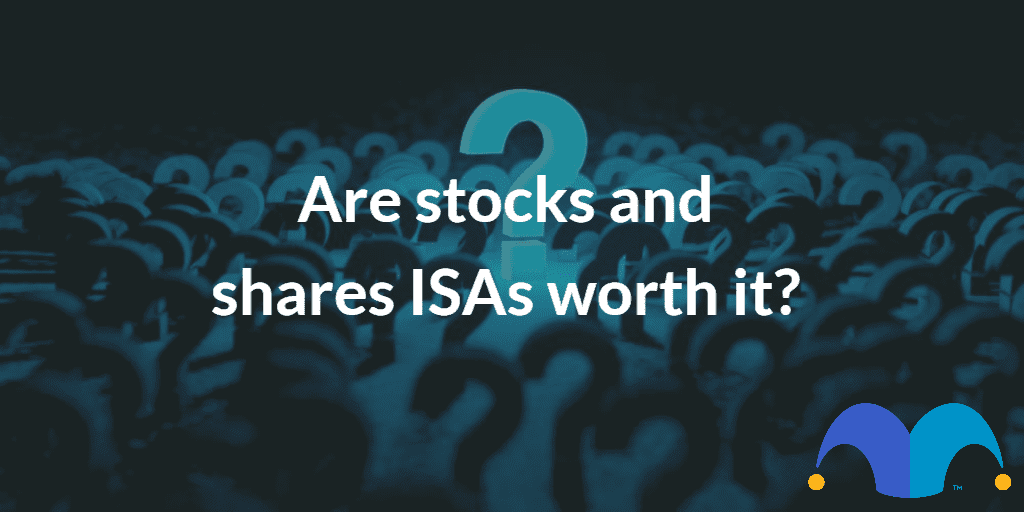You may well have heard people talk about stocks and shares ISAs and wondered what all the fuss is about. Are stocks and shares ISAs worth it? Read on to find out.
What are stocks and shares ISAs?
Stocks and shares ISAs have a lot of benefits. They can be a really good way to start investing, and they are also used by many seasoned investors.
Essentially, they are tax-efficient investing accounts. You can invest up to £20,000 in an ISA each year tax without paying tax. A lot of people want to make the most of that benefit!
How do stocks and shares ISAs differ from other ISAs?
There are a lot of different types of ISAs, all of which have unique qualities. You may have heard of Lifetime ISAs or cash ISAs. These have their own benefits but generally operate very similarly to savings accounts.
Rather than simply being a savings account, a stocks and shares ISA is an investing account. You don’t hold cash, you hold stocks and shares – as the name would suggest.
What are the average returns?
Like any investment, stocks and shares ISAs can go up and down in value. Over time, you’re likely to see an increase if you invest in one. While this is not guaranteed, average returns on these ISAs are very strong.
Stocks and shares ISAs have historically performed relatively well. For example, according to Finder.com, the average annual rate of return for stocks and shares ISAs from April 1999 to April 2020 was 5.14%.
Meanwhile, more recently, stats from Moneyfacts.co.uk revealed the average stocks and shares ISA returned 13.55% between March 2020 and March 2021.
Why should you consider stocks and shares ISAs?
There are a lot of reasons to think about stocks and shares ISAs.
Tax advantages
Currently, stocks and shares ISAs come with significant tax advantages.
The total amount you can save in ISAs in the 2022-2023 tax year is £20,000. This ISA limit is set by the government and is subject to change from year to year.
Any money up to this limit put into ISAs is tax free. This means investors won’t have to pay any tax on dividends or gains realised while investing in stocks and shares ISAs.
The tax year runs from 6 April to 5 April. HMRC’s deadline to put money in an ISA and take advantage of your allowance in a tax year is midnight on 5 April.
Higher returns on your investments
Investing isn’t always smooth sailing, but over time investments in stocks and shares ISAs tend to increase in value.
So if you invest in this type of ISA, over time, you may well end up with more money than you originally invested.
Take the average return mentioned above (5.14%). If you invested £1,000 tomorrow, you could have £1,650.74 in 10 years time. This is significantly more than if you held the money in cash.
Now say, you invest £1,000 each year for 10 years. You could end up with £14,311.13, based on annual growth of 5.14%.
Protection against inflation
Inflation is high at the moment. Keeping savings in cash effectively means losing money over time, particularly while interest rates are so low.
If you keep £1,000 in cash for a year, you’ll be lucky to get 0.25% interest on it. This would give you a total of £1002.50 at the end of the year.
However, if inflation is 5% (which is plausible as the current figure is 5.4%). For your £1,000 to be worth the same in a year’s time, you would need £1050.
While you will struggle to make this extra £50 in a savings account, a stocks and shares ISA might be able to help you out.
Transferable between providers
Stocks and shares ISAs can be moved from one provider to another without any tax-free benefits.
As long as you follow the ISA transfer rules – which your provider will be able to tell you about – you can move your ISA to a different company without losing any of the benefits you have gained during the tax year.
This gives you the freedom to shop around for better rates and lower fees, meaning you can take advantage of deals whenever you come across them.
Protection if your provider collapses
If your stocks and shares ISA provider goes out of business your money and assets are protected by the Financial Services Compensation Scheme (FSCS) as long as the provider is regulated by the Financial Conduct Authority (FCA).
Meanwhile, if the fund manager of a fund you invest in goes bust, your underlying assets will also be protected. The stocks owned by any fund are held separately by a trustee or a depositary. This means that if its fund manager goes under, then the investments in the fund are unaffected.
What are the criteria for getting one?
Most people in the UK are eligible for stocks and shares ISAs. The only criteria are that you must be:
- Aged 18 or over
- A UK resident (for tax purposes)
You can only have one stocks and shares ISA per tax year.
Should you consider stocks and shares ISAs?
This is a personal decision and will depend on your own circumstances. If you’re looking to start investing, stocks and shares ISAs are well worth considering as a starting point. Check out our top stocks and shares ISAs in the UK to get started today.
Please note that tax treatment depends on the individual circumstances of each individual and may be subject to future change. The content of this article is provided for information purposes only. It is not intended to be, nor does it constitute, any form of tax advice. Readers are responsible for carrying out their own due diligence and for obtaining professional advice before making any investment decisions.
